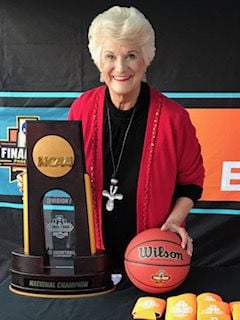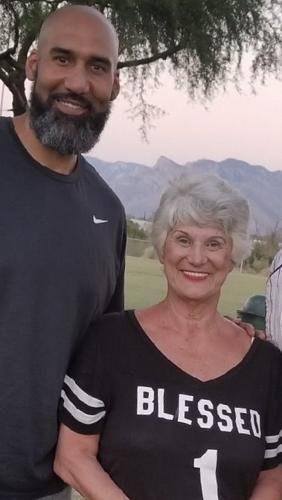I was alone at The Galleria mall in Houston. My son, Joseph, had left for college in Tucson and older son, Jonathan, had previously departed for school, a job, and his own apartment. It was after work and I realized I didn’t need to rush home, prepare dinner, or check in with anyone. After years of dwelling with others, the nest was now empty.
I was, to be honest, a bit lonely.
What subsequently transpired was unexpected, yet ever so welcomed. My son Joseph’s participation as a basketball player at the University of Arizona provided, both to him and to me, an extended kindred of sorts. The Wildcat family adopted us.
Ever since I entered a sold-out McKale Center for a men’s game in the fall of 1992, I was greeted by open hearts and open arms. Upon moving to Tucson, the same congenial attitude prevailed throughout the city. I am both humbled and deeply gratified for the endorsing of my Wildcat son.
What I share next is both thought-provoking and heart-wrenching.
The support of the men’s basketball players and their families is tremendously appreciated. Thousands of arena seats are filled. But when I attend women’s basketball games, thousands of seats are vacant. Physically, I sit there as a 70-year-old mother and grandmother; emotionally, I’m taken back well over 50 years to when I experienced gender bias. My heart breaks.
There was no girls’ basketball team in my hometown Sugar Grove, Ohio. I sat and cheered for my brother’s and best friends’ team, but I was in great sorrow. They, as a team, could practice “ripping the threads” of a basket inside a gymnasium, while I, alone, outside on the playground court, “jingled the chains” of that basket. It never seemed fair.
Neither does it seem fair to see such disparity in attendance of men’s and women’s basketball games. Arizona’s women averaged 1,933 fans per game a year ago; the men averaged 14,434, most in the Pac-12 by a large margin.
This year, the women are averaging 1,817 fans per game — even lower than last year’s total and, again, well behind the men.
I don’t believe it to be intentional gender bias, yet the inequality is obvious.
I’m humbly, boldly suggesting that you check out a game. Friday marks a perfect opportunity. The UA will celebrate the “Birthday of Basketball” when the Wildcats take on Northern Arizona at 6:30 p.m.
Margaret Naismith Jonker, the great-granddaughter of basketball’s inventor, James Naismith, will be a special guest, and Tucson mayor Jonathan Rothschild will be making a special proclamation at halftime.
This birthday celebration could be a local re-birth of women’s basketball and be a great launch to the Pac-12 season. Timing is everything, and the Wildcats’ time is now. They have a solid foundation, a great coach in Adia Barnes, an excellent staff, and an incredible team! Would you please join us and help to “un-break my heart”?
You’ve done it before.
My son, Joseph, has served the community in many ways, most notably providing a free camp for Tucson youth for nearly 20 years. I helped Joseph out, earning the nickname “Mama Blair” from the campers.
A year ago, I was at another mall — the Tucson Mall — when I heard someone shout, “Mama Blair!” I turned to see a teenage boy rushing towards me with a big smile and open arms.
“Mama Blair, it’s me, from camp,” he said.
We embraced, and I was blessed beyond all measure. Let’s give UA women’s team the same feeling!





